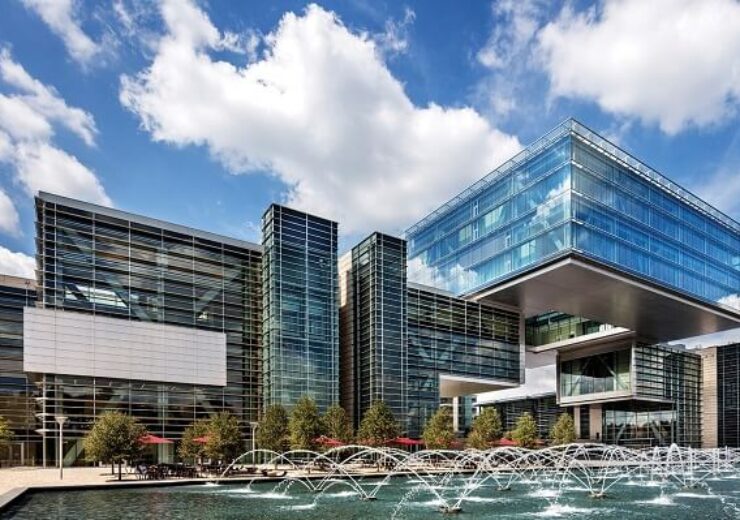The impacted employees represent around 7% of the company’s workforce in the country

ExxonMobil global headquarters in Texas. (Credit: ExxonMobil/Wikipedia.org)
ExxonMobil has announced that it will lay off nearly 300 employees by the end of this year in Singapore, as part of its effort to boost and sustain its long-term competitiveness.
The impacted employees represent around 7% of the oil and gas major’s workforce of over 4,000 in Singapore.
ExxonMobil has blamed the layoffs on the unprecedented market conditions arising from the Covid-19 pandemic.
The company said that the pandemic has expedited its ongoing reorganisation and changes in the work-process.
ExxonMobil expects the moves to not only enhance its long-term cost competitiveness but also its ability to steer through near-term challenges.
ExxonMobil Asia Pacific chairman and managing director Geraldine Chin said: “This is a difficult but necessary step to improve our company’s competitiveness and strengthen the foundation of our business for future success.
“We are providing transitional support to our colleagues who are impacted and are focused on getting through this challenging time.”
The company said that Singapore will continue to be one of its strategic locations.
ExxonMobil Asia Pacific (EMAPPL), the company’s affiliate has manufacturing facilities in the Southeast Asian country, which include the Singapore Refinery, and integrated refining and petrochemical complex in Jurong and Jurong Island.
The Singapore Refinery has a nameplate capacity of around 592,000 barrels a day. It produces a variety of fuels, base oils for automotive and industrial lubricants, and aromatics.
ExxonMobil also has a chemical plant in Singapore, which produces 1.9 million tonnes per year of ethylene. The chemical plant is fully integrated with the Singapore Refinery.
The job cuts in Singapore for the company follow an announcement in December 2020 to lay off more than 700 roles in Houston, Texas.
The Houston job cuts are part of the approximately 1,900 expected layoffs in the US as announced by ExxonMobil last October.
In November 2020, the company said that it will cut up to 300 roles in Canada as part of its restructuring efforts driven by the Covid-19 pandemic.
